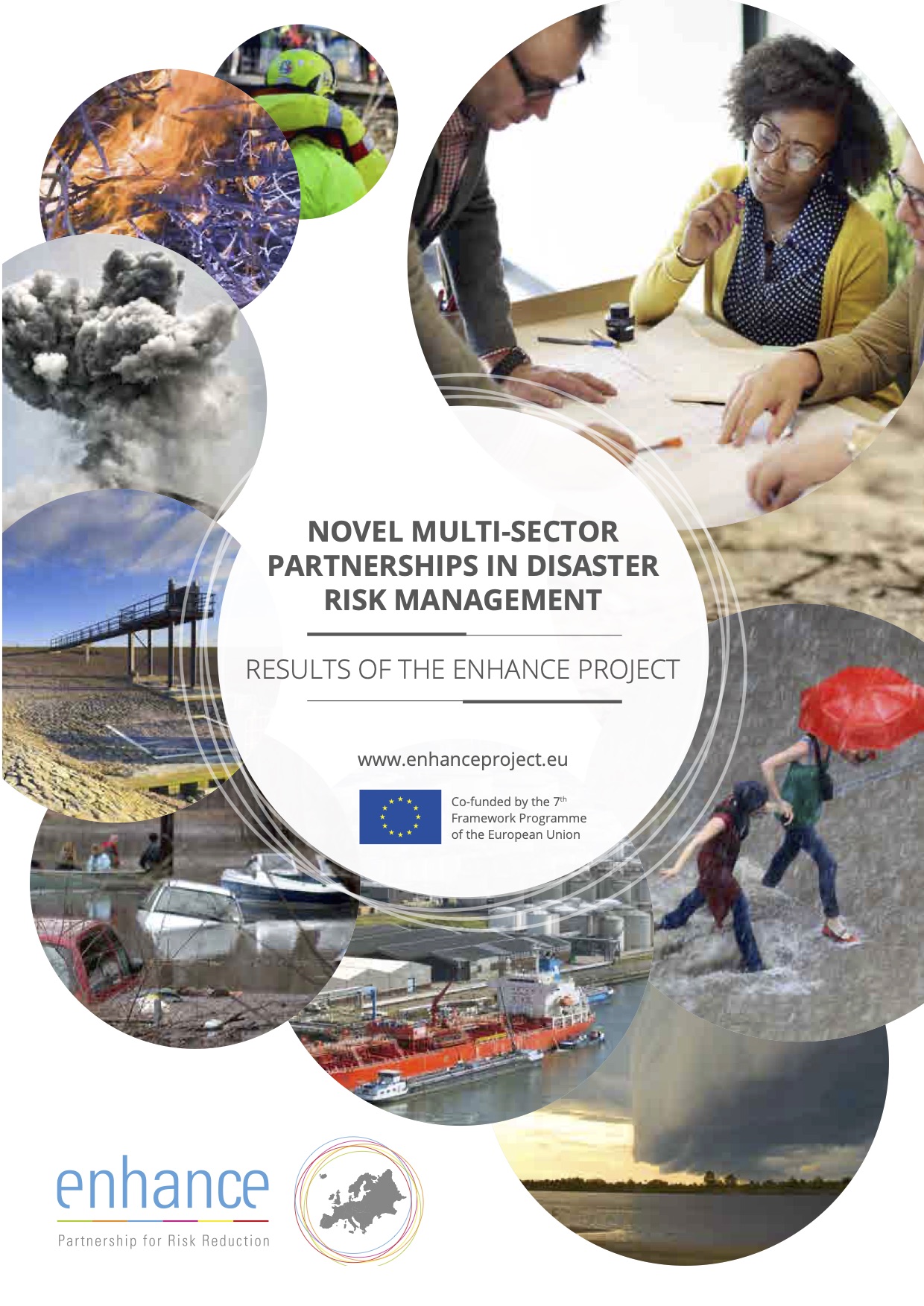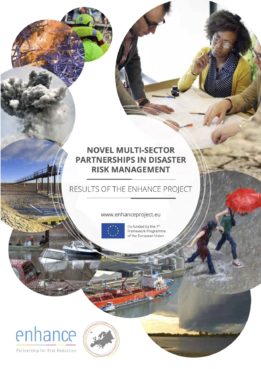Novel multi-sector partnerships in disaster risk management
Publication date: 6 April 2020 | Report language:
This book is the final result of the ENHANCE project. This project aimed at developing and analysing novelways to enhance society’s resilience to catastrophic natural hazard impacts. It analysed and developed newmulti-sector partnerships (MSPs) between public and private sectors, with emphasis on the financial sector. MSPs are voluntary but enforceable commitments between partners from different sectors (public authorities, private services/enterprise and civil society), which can be temporary or long-lasting. They are founded on sharing the same goal: reduce risk and increase resilience. The project was carried out by 25 partners from academic institutes, governmental sector, private companies, and international organisations, with emphasis on the financial sector such as insurance.
The ENHANCE project has studied ten case studies on risk reduction, taking place at different geographical and spatial scales in Europe. The case studies are re-lated to heat waves, forest fires, floods, droughts, storm surges, and volcanic eruptions. Based on these case studies the project has assessed current partnerships, and analysed what risk information is needed to enhance risk management.
In order to develop MSPs that can effectively reduce risk, the first step is to widen the risk information basis of stakeholders, through the development of risk assessment models, evaluation tools, a risk catalogue and toolbox, and the provision of an inventory of existing risk scenarios in Europe. Special attention was paid to economic instruments that can complement already existing disaster risk reduction (DRR) measures within MSPs. For example, insurance schemes can be used to compensate losses after a damaging event. However, it can also be used to provide incentives to households to reduce risk, through deductibles and premium setting. In addition, water pricing can be used as an instrument to limit water consumption in drought prone areas, and raise awareness on water scarcity.
Furthermore, ENHANCE has explored the roles of actors and stakeholders, and has systematically exa-mined their successes and failures in increasing resilience to natural hazards and disasters and their associated risks. Accordingly, this book describes indicators for successful and unsuccessful partnerships and recommendations will be provided as to how to improve cooperation to better manage risk. Finally, the regulatory policy framework is analysed, from the global level (e.g. the Sendai Framework for Disaster RiskReduction 2015-2030) to the local levels, since regulations can steer the development of partnerships and set the financial and administrative boundary conditions for partnerships for developing DRR measures.



